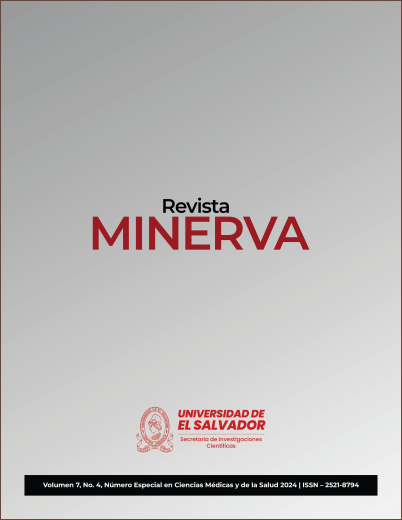Health and living conditions in Colonia El Transito, Cuscatancingo: Resilience and optimism
DOI:
https://doi.org/10.5377/revminerva.v7i4.19260Keywords:
Community work, health and living conditions, San SalvadorAbstract
Study conducted in the El Transito neighborhood, Cuscatancingo, San Salvador. The objective was to determine the level of living conditions and health of its inhabitants, 42 men and 110 women were registered in 152 homes out of a total of 290; the researchers carried out this study with the help of students from the Basic Sciences Unit of the School of Medicine, in accordance with the curricular requirements of the level, in the community activity. Methodologically, it is a quantitative and descriptive study, and a community visit was made in a single event to all the houses in the neighborhood. Data related to material living conditions were collected and the WHOQOL-BREF instrument was used to determine the level of living and health conditions. Slight modifications were made to the internationally validated instrument in order to use words or terms commonly used by the population. The results show a resilient attitude towards their material life situation, by improving their living and health conditions, successfully consolidating their adaptive strategy. According to the categorical scale of the instrument used, a result of 3.05 is equivalent to normality. The psychic dimensions and social relations cultivated make them reach this “normality”. It is concluded that the management for the improvement of the garbage collection service, the improvement of the neighborhood’s ornamentation and more careful algological treatment strategies for the residents with chronic diseases of old age, would substantially improve the health and living conditions of the residents of the El Transito neighborhood.
301


